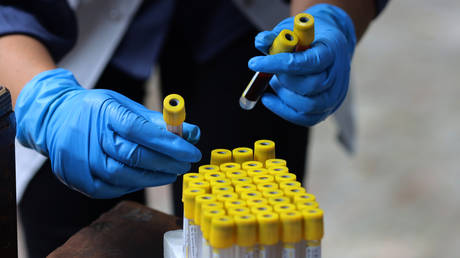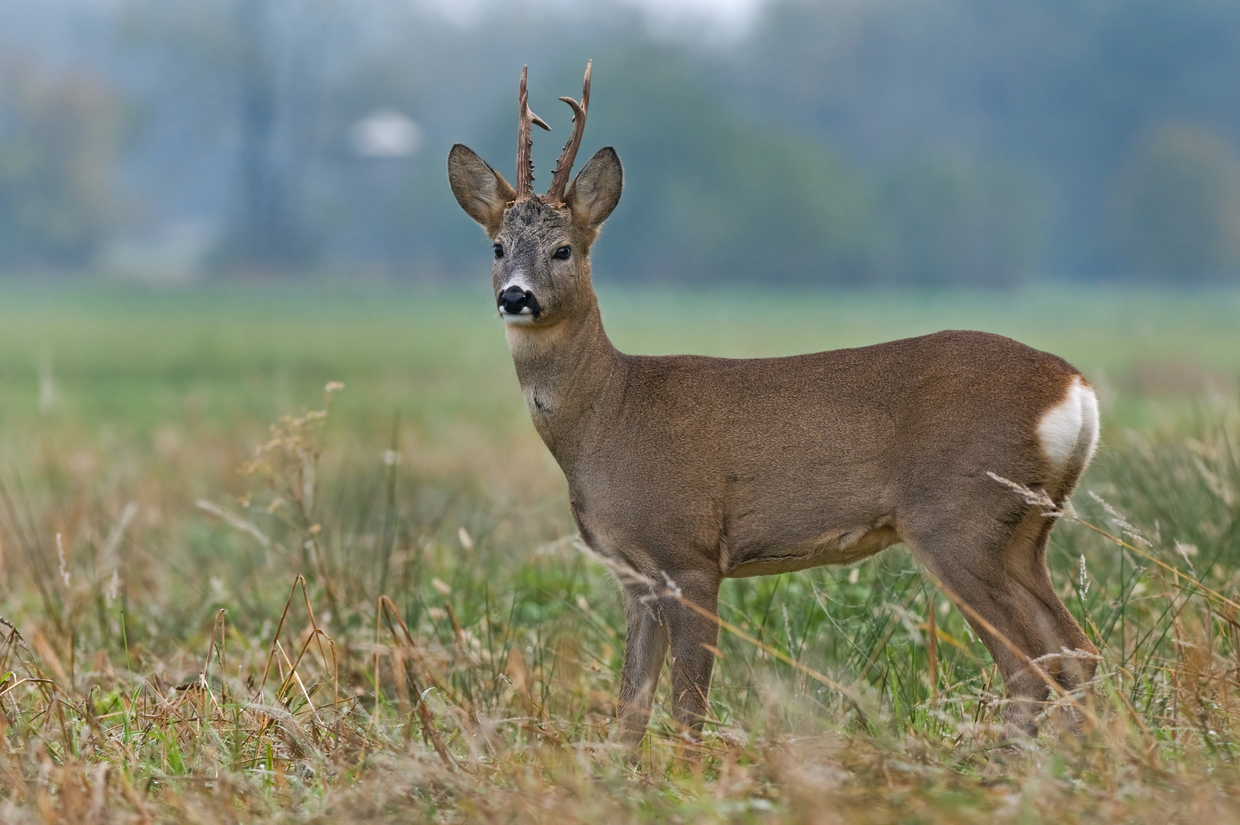
Deer in US have caught highly transmissible Covid variant
White-tailed deer on New York’s Staten Island have become the first known wild animals infected with the Omicron Covid variant, which has already caused a huge wave of infections in humans throughout the world.
The news was revealed in a new study conducted by scientists from Pennsylvania State University, the University of Chicago, White Buffalo NGO, City of New York Parks & Recreation, and a number of other institutions. A preprint of the document was published on Monday on the bioRxiv portal.
The scientists analyzed blood samples from 131 deer, collected between mid-December and the end of January, to discover that around 15% of the animals had Covid antibodies. Seven out of 68 PCR-tested deer turned out to be infected at the time of testing, with whole-genome sequencing identifying the Omicron variant.

© Getty Images / Uros Poteko
Some of the Omicron-infected animals were likely to have been previously infected with other Covid variants, which, according to the study, confirms the virus’ ability to effectively evade immune system defenses.
Further analyses allowed the research team to conclude that the deer caught Omicron from humans, as “the deer Omicron sequences clustered closely with other, recently reported Omicron sequences recovered from infected humans in New York City and elsewhere, consistent with human to deer spillover.”
These findings were not unexpected, as deer were known to be very susceptible to Covid. Last November, it was revealed that 80% of deer sampled between December 2020 and January 2021 in Iowa tested positive for the virus.
Since then, previous Covid variants have been discovered in species in more than a dozen US states.
The exact mechanism of how people are spreading Covid to deer, however, remains unclear.
“Together, our findings show that the SARS-CoV-2 B.1.1.529 Omicron VoC can infect white-tailed deer and highlights an urgent need for comprehensive surveillance of susceptible animal species to identify ecological transmission networks and better assess the potential risks of spillback to humans,” the authors of the new study warned.
One of the researchers, a veterinary microbiologist Vivek Kapur explained that while there was no imminent threat to humans, “the circulation of the virus in deer provides opportunities for it to adapt and evolve.”
“And it’s likely to come back and haunt us in the future,” he added, as quoted by The New York Times.




